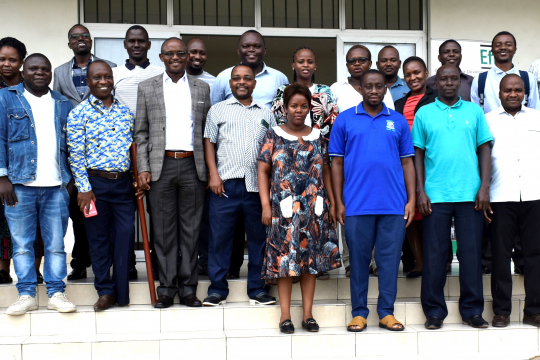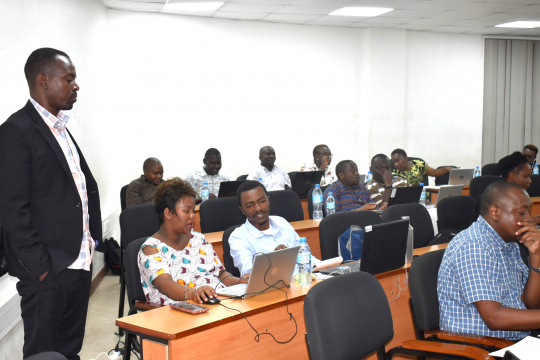EfD Tanzania researchers conducted a workshop for National Environment Management Council (NEMC) officials to sharpen their skills in cost-benefit analysis (CBA) which helps them determine whether a proposed project or investment is worthwhile by comparing its costs and benefits.
An important task of the NEMC is to review different projects and programs by investors planning to invest in Tanzania. Thus, learning better skills in CBA will help them to select the most cost-effective alternatives.
Dr. Remidius Ruhinduka, Deputy EfDT coordinator, highlighted the importance of capacity development for civil servants which is why EfD conducts on-the-job training for policy actors to bridge the knowledge and capacity gap.
The three-day training workshop was organized in collaboration with NEMC from 22nd to 24th March 2023 at the College of Agriculture & Food Technology (CoAF) at the University of Dar es Salaam.
Helpful for investors and government officials
Arnold Mapinduzi, NEMC Manager, noted that the three-day workshop will help the officers in evaluating proposals, especially for environmental impact assessments. CBA can also help investors to identify factors that can hinder profit and have a negative impact on the project. And CBA is in addition very useful for the government in monitoring the progress of the project and making sure all projects bring benefits to the investors as well as the government.
Aminata Kirama, Senor Environmental Management officer in NEMC noted that the training will help her to evaluate projects better. She said that the skills obtained will not only be applied to physical and economical aspects, but also to environmental, ecological social, and cultural, aspects of projects to improve how trade-offs are made. She had learned how CBA involves comparing the explicit and implicit costs of taking an action versus expected benefits. Projects may require assigning monetary value to factors that don’t have explicit costs. Therefore, the resulting analysis will allow them as decision-makers to weigh all information and make rational choices for the public-sector or private investors.
Several methods were presented
EfD Research Stephen Kirama introduced Practical Cost-Benefit Analysis, and Cost Effectiveness Analysis (Building Project). He showed them how cost-benefit analysis in environmental impact assessment techniques is used to improve the quality of both the project plan and decision-making by identifying possible effects in the early stages. Wilhelm Ngasamiaku coached them on the Technical Approaches to Project Appraisal. Martin Chegere showed them how to conduct Uncertainty and Sensitivity analysis in projects, while Aloyce Hepelwa led a practice using the Spreadsheet for Net Present Value (NPV), Internal Rate of Return (IRR), and Payback Period (PP).
During practice, the participants were given examples from various recent big projects in Tanzania like the Mwalimu Nyerere Hydroelectric power plant.
By Salvatory Macha

